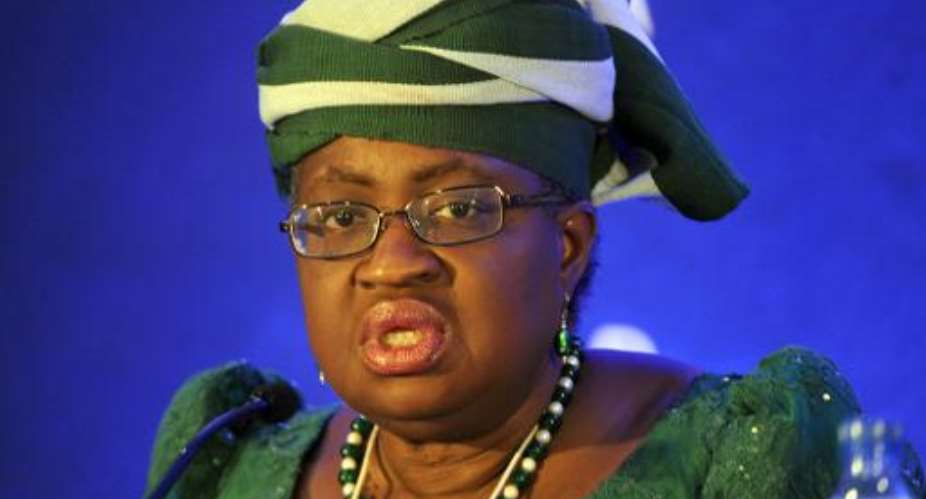Abuja (AFP) - Nigeria's finance minister on Wednesday downgraded growth forecasts for 2015 and proposed a modest cut in spending as Africa's top economy tries to respond to plummeting global crude prices.
Finance Minister Ngozi Okonjo-Iweala said an earlier estimate for 2015 GDP growth of 6.35 percent had been lowered to 5.5 percent.
Based on the revised growth forecast and a reduced benchmark oil price of $65 (52 euros) per barrel -- down from $78 earlier this year -- Okonjo-Iweala called for a reduction in government spending next year.
"We have an expenditure of 4.3 trillion naira ($24 billion)," for 2015, down from 4.6 trillion naira in 2014, she told reporters after presenting the measures to both houses of parliament.
The minister's proposals, which must be approved by lawmakers, were the latest sign that Nigeria is facing an acute revenue crunch caused by the collapsing global oil market.
"This budget really focuses on moving us to diversify the economy and raise non-oil revenue," Okonjo-Iweala said.
She urged Nigerians "to begin thinking of the country (as) a non-oil country."
Nigeria, Africa's largest oil producer, depends on crude exports for 70 percent of government revenue and some 90 percent of its foreign exchange earnings.
Brent crude closed below $60 per barrel on Wednesday for the first time since 2009.
Economists have broadly applauded Nigeria's dramatic moves in responding to the crisis, including a devaluation of the naira, new taxes on luxury items and cutting the benchmark oil price used to guide spending.
But some political watchers see trouble ahead for ruling Peoples Democratic Party, with presidential and primary elections set for February 14.
Analysts say the PDP has won every election since democracy was restored in 1999 partly by using public money to fund its campaigns and that depleted government coffers could hurt the party's political fortunes.
The finance minister has previously described the falling oil market as "a serious challenge".
President Goodluck Jonathan has tried to tell voters that he is the best candidate to sustain economic growth and is facing an opposition party led by ex-military dictator Muhammadu Buhari, whose economic credentials have been questioned.





 Togo leader Gnassingbe follows father's political playbook
Togo leader Gnassingbe follows father's political playbook
 NDC panics over Bawumia’s visit to Pope Francis
NDC panics over Bawumia’s visit to Pope Francis
 EC blasts Mahama over “false” claims on recruitment of Returning Officers
EC blasts Mahama over “false” claims on recruitment of Returning Officers
 Lands Minister gives ultimatum to Future Global Resources to revamp Prestea/Bogo...
Lands Minister gives ultimatum to Future Global Resources to revamp Prestea/Bogo...
 Wa Naa appeals to Akufo-Addo to audit state lands in Wa
Wa Naa appeals to Akufo-Addo to audit state lands in Wa
 Prof Opoku-Agyemang misunderstood Bawumia’s ‘driver mate’ analogy – Miracles Abo...
Prof Opoku-Agyemang misunderstood Bawumia’s ‘driver mate’ analogy – Miracles Abo...
 EU confident Ghana will not sign Anti-LGBTQI Bill
EU confident Ghana will not sign Anti-LGBTQI Bill
 Suspend implementation of Planting for Food and Jobs for 2024 - Stakeholders
Suspend implementation of Planting for Food and Jobs for 2024 - Stakeholders
 Tema West Municipal Assembly gets Ghana's First Female Aircraft Marshaller as ne...
Tema West Municipal Assembly gets Ghana's First Female Aircraft Marshaller as ne...
 Dumsor is affecting us double, release timetable – Disability Federation to ECG
Dumsor is affecting us double, release timetable – Disability Federation to ECG
